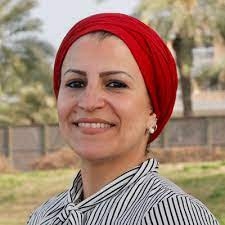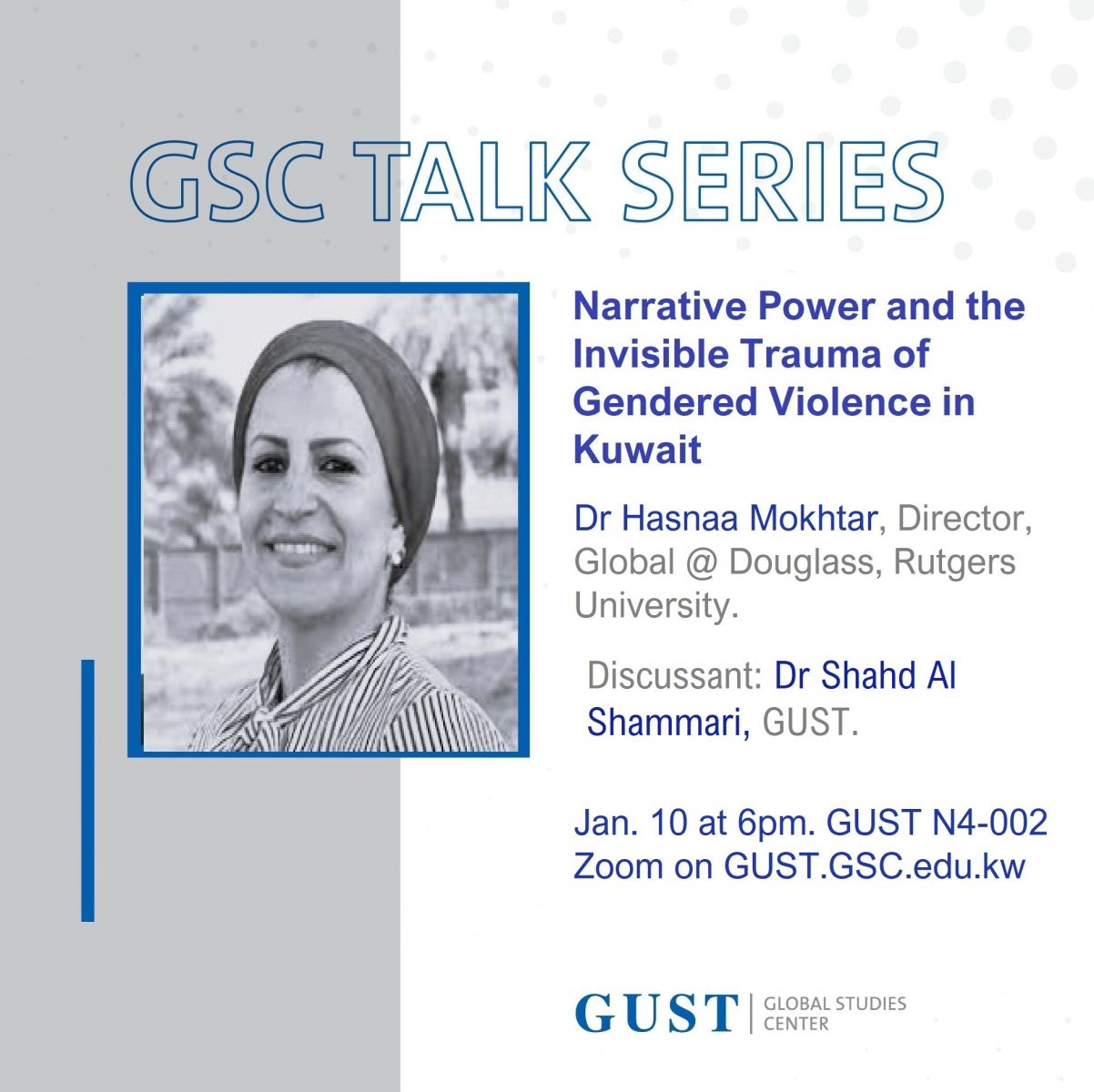Hasnaa Mokhtar: Narrative Power and the Invisible Trauma of Gendered Violence in Kuwait

In the past few years, the lobbying and activism of Khaleeji feminists and civil society organizations have sparked a public discussion of gender-based violence in the Arabian Gulf, demanding accountability for the aggressors and seeking support for survivors. However, the narrative as to why the problem occurs remains trapped within selective, racist, and oversimplified analyses of blaming traditions and honor. This talk asks: how might a decolonial conceptualization of gendered violence inform research and knowledge production, as well as anti-violence policy making and intervention efforts? Utilizing autoethnography and decolonial feminism, I investigate structural violence in Kuwait beyond the culture narrative. Using analysis of primary data collected between 2018-2019 in Kuwait, the study draws attention to the importance of theorizing from within the region, and that scholarship and policies addressing gender-based violence require us to complicate and nuance the analysis and pay attention to people’s worldviews with the aim of diversifying knowledge and policy making and intervention.
Room N4-002 GUST
Zoom: https://us06web.zoom.us/j/87004107210?pwd=ZU5hRnliVTVobEJsNDZkMEhnV3JSQT09
Dr. Hasnaa Mokhtar is the Director of Global at Douglass College, Rutgers University. She is a scholar, researcher, and activist, with expertise in the Arabian Gulf, focusing on narratives of Muslim survivors of gender-based violence. Dr. Hasnaa’s writings have been published in mainstream media such as Fortune and Yahoo and in academic journals such as Feminist Review and Feminist Anthropology. Previously, Hasnaa served as the executive director of the Center for Nonviolent Solutions in Worcester, MA, and more recently as the special program director at Peaceful Families Project.
The discussant of Dr. Mokhtar will be Dr. Shahd Al Shammari, Assistant Professor of English at GUST.

Room N4-002 GUST
Zoom: https://us06web.zoom.us/j/87004107210?pwd=ZU5hRnliVTVobEJsNDZkMEhnV3JSQT09
Dr. Hasnaa Mokhtar is the Director of Global at Douglass College, Rutgers University. She is a scholar, researcher, and activist, with expertise in the Arabian Gulf, focusing on narratives of Muslim survivors of gender-based violence. Dr. Hasnaa’s writings have been published in mainstream media such as Fortune and Yahoo and in academic journals such as Feminist Review and Feminist Anthropology. Previously, Hasnaa served as the executive director of the Center for Nonviolent Solutions in Worcester, MA, and more recently as the special program director at Peaceful Families Project.
The discussant of Dr. Mokhtar will be Dr. Shahd Al Shammari, Assistant Professor of English at GUST.

Tuesday, January 10, 2023 - 18:00

